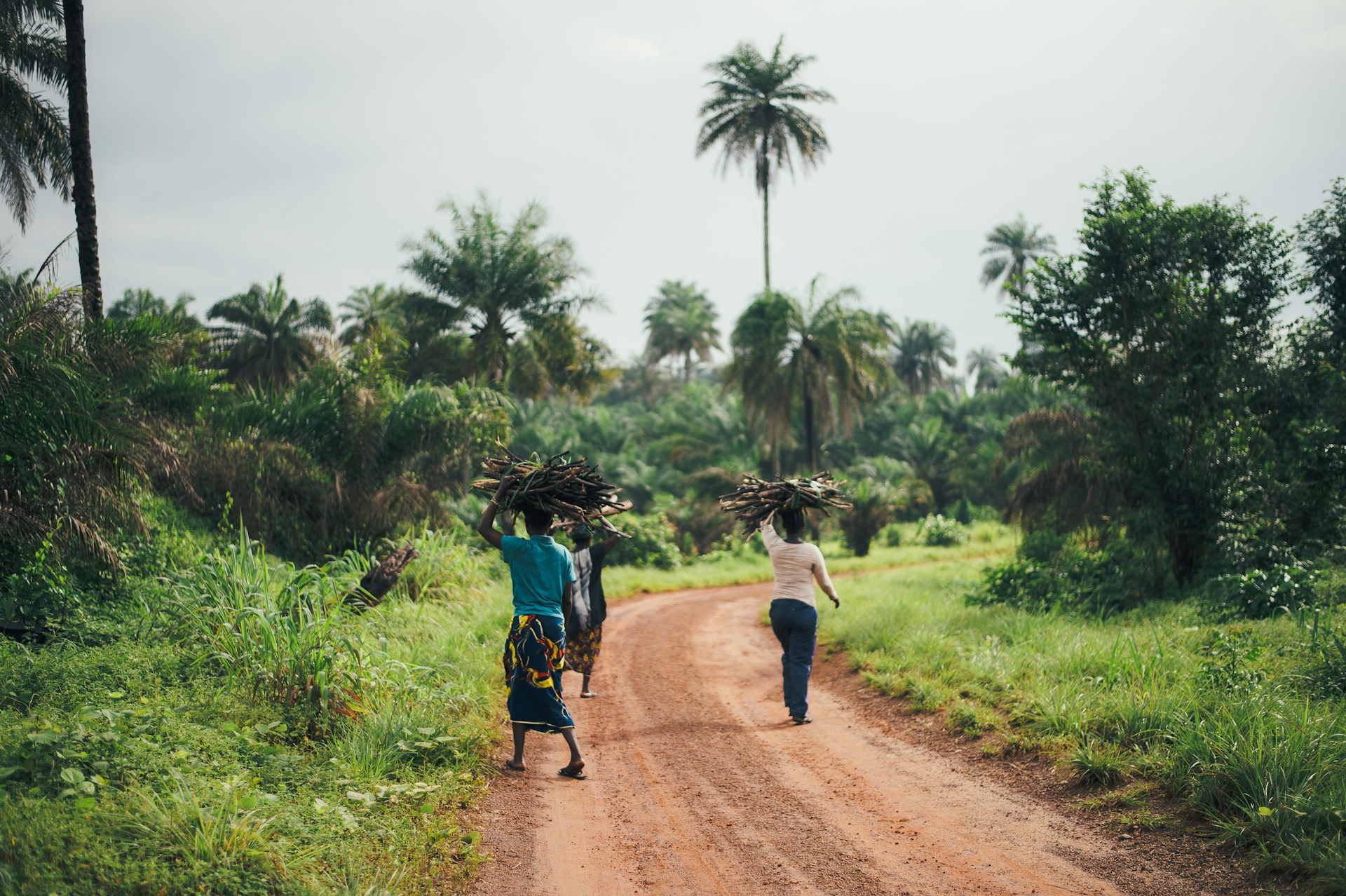Africa
Impact Investment in Africa: Manifest Interest but Moderate Growth
Despite a growing interest in impact investment in Africa, driven by public and private financiers and major foundations, the annual growth of 15% over the past five years remains modest compared to over 30% in the United States and Europe. Unfortunately, impact investors in Africa face significant obstacles including currency risk affecting profitability and lack of demand from other investors.

Environmental, social, and economic crises have made it imperative for the financial sector to consider the effects of its actions on society, with impact investment emerging as a means to address these issues by integrating social and environmental objectives alongside financial profitability.
While this financial innovation originated and primarily developed in the United States and Europe, it is gaining popularity in emerging countries, particularly in Africa.
Download the free Born2Invest news app for more of the latest impact investment news.
Defining Impact Investment
Impact investment stands out from other forms of investment through two cardinal principles: intentionality and additionality. Intentionality implies that impact investors seek a balance between profitability and impact, unlike traditional investors who base their investment decisions solely on expected financial returns. Practically, this means an impact investor will accept a reduced return on investment as long as the investment generates a positive effect on the community, whether economic, social, or environmental. Additionality means that impact investors primarily target businesses, sectors, or geographies neglected by other financiers.
Apart from these differences, impact investment operate similarly to other investors. They use their capital (from various sources) to finance businesses or projects, often through equity financing, which involves purchasing ownership stakes for eventual resale at a hoped-for profit.
+15% Growth Per Year
There is a growing interest in impact investment in developing countries in general and in Africa in particular. Public and private financiers are increasingly active in providing financing solutions to impact investors on the continent. The World Bank’s Private Sector Window fund, established in 2017 with $2.5 billion, partially earmarked for impact investment, aims to develop the private sector in low-income countries. Similar initiatives have emerged at the European Union level or among bilateral donors like France with its “Choose Africa” program. Meanwhile, major foundations are increasing their support for impact investment in Africa, exemplified by the Mastercard Foundation and its dedicated “Africa Growth Fund,” endowed with $200 million.
This interest in impact investment in Africa is driven by a dual observation. On one hand, African businesses suffer from limited access to financing, hindering their development. Banks, the main creditors, are reluctant to lend to small and medium-sized enterprises (SMEs) due to an unfavorable risk-return balance. However, these businesses have numerous positive impacts on their communities. SMEs play a major role in poverty reduction, social inclusion, women’s empowerment, and environmental preservation.
Despite the sustained growth of impact investment on the continent, with a 15% annual increase over the past five years according to the Global Impact Investing Network, this growth remains modest compared to what is observed elsewhere. In the same period, growth has exceeded 30% in the United States and Europe.
Impact Investment Faces Complex Procedures and Scale Issues
The more moderate growth of impact investment in Africa is not easily explained by a lack of demand. Investors highlight the enormous potential, as explained by a manager of an impact investment fund based in Denmark and specializing in supporting environmentally impactful businesses:
“There are numerous investment opportunities in Africa for our fund due to Africa’s demographic dynamics, improving purchasing power, and many initiatives around climate transition.”
However, several factors prevent these impact investment actors from financing these businesses. Firstly, local and smaller funds struggle to raise the necessary sums. While there are public initiatives, such as the World Bank’s fund mentioned earlier, the procedures to benefit from them are often so complex that many actors cannot access them.
Additionally, it is challenging to attract private financiers who deal in hundreds of millions of dollars when local funds can only absorb a few million in impact investment. In other words, local funds are too small to be on the radar of large investors. Consequently, the available resources are mainly concentrated in a few significant funds. The director of a fund based in France and specializing in Africa testifies:
“Historically, funds have benefited from financing from development financial institutions, but these actors are increasingly reluctant to support new initiatives on the continent.”
Impact Investment Risks and Lack of Qualified Workforce
Another obstacle is the low profitability of funds on the continent due to exogenous factors. Respondents highlighted the importance of currency risk, which heavily impacts profitability. Capital is often denominated in strong currencies while investments are made in local currencies.
The profitability of investments decreases with each depreciation of the local currency. Currency instability is a recurring problem in many African countries where funds are active, such as Nigeria, Ghana, or Kenya.
Impact investors are also often forced to wait to exit under more favorable conditions or sell their stakes to the company’s leaders, who do not have the same financial capacity as an international investor.
An American impact investment fund manager operating in Africa laments:
“It is sometimes complicated to sell our stakes at the end of the investment cycle due to insufficient demand from other local or international investors.”
A final challenge is the necessary professionalization of impact investment funds operating in Africa. It remains difficult for them to attract and retain qualified personnel in specific areas such as impact measurement, which they need to assess the relevance of their investments. There is a real lack of qualified workers in this field in Africa. The rare available workforce is often quickly absorbed by other organizations, such as international organizations, which offer better prospects. Our American manager acknowledges:
“We lack human skills, particularly for impact measurement and due diligence.”
Conclusion and Future Prospects
Here are some priority areas to ensure that impact investment can become a viable financing solution for high-impact businesses in Africa. It is worth noting that other obstacles that might have seemed significant were never mentioned by the interviewees. For example, the degree of business formalization or regulation does not seem central from the investors’ perspective.
__
(Featured image by Annie Spratt via Unsplash)
DISCLAIMER: This article was written by a third party contributor and does not reflect the opinion of Born2Invest, its management, staff or its associates. Please review our disclaimer for more information.
This article may include forward-looking statements. These forward-looking statements generally are identified by the words “believe,” “project,” “estimate,” “become,” “plan,” “will,” and similar expressions. These forward-looking statements involve known and unknown risks as well as uncertainties, including those discussed in the following cautionary statements and elsewhere in this article and on this site. Although the Company may believe that its expectations are based on reasonable assumptions, the actual results that the Company may achieve may differ materially from any forward-looking statements, which reflect the opinions of the management of the Company only as of the date hereof. Additionally, please make sure to read these important disclosures.
First published in The Conversation. A third-party contributor translated and adapted the article from the original. In case of discrepancy, the original will prevail.
Although we made reasonable efforts to provide accurate translations, some parts may be incorrect. Born2Invest assumes no responsibility for errors, omissions or ambiguities in the translations provided on this website. Any person or entity relying on translated content does so at their own risk. Born2Invest is not responsible for losses caused by such reliance on the accuracy or reliability of translated information. If you wish to report an error or inaccuracy in the translation, we encourage you to contact us

-

 Impact Investing2 weeks ago
Impact Investing2 weeks agoBNP Paribas Delivers Record 2025 Results and Surpasses Sustainable Finance Targets
-

 Impact Investing3 days ago
Impact Investing3 days agoCDP Approves €1.5 Billion Package to Boost Industry, Renewables, and International Development
-

 Crypto1 week ago
Crypto1 week agoUniswap and BlackRock Partner to Launch BUIDL in DeFi
-

 Biotech6 days ago
Biotech6 days agoNew Molecular Clues Explain Aggressive Neuroblastoma and Point to Targeted Treatments
























